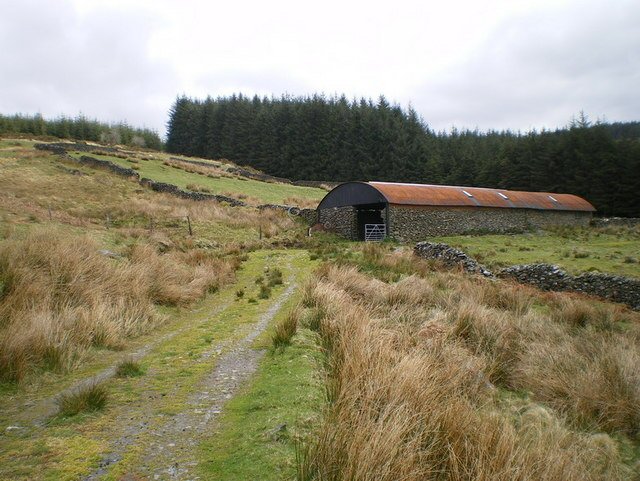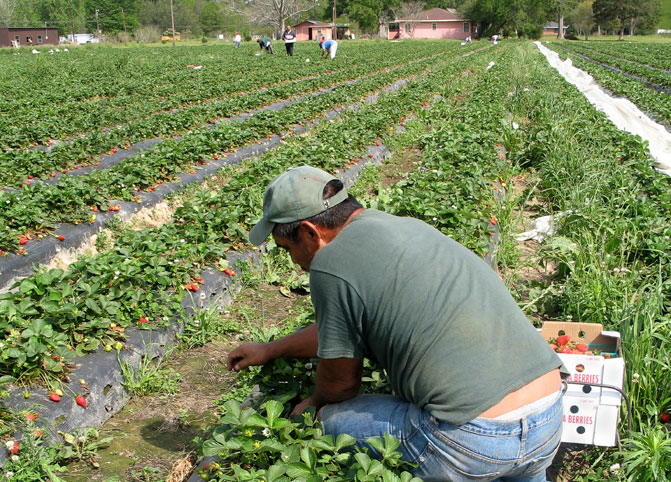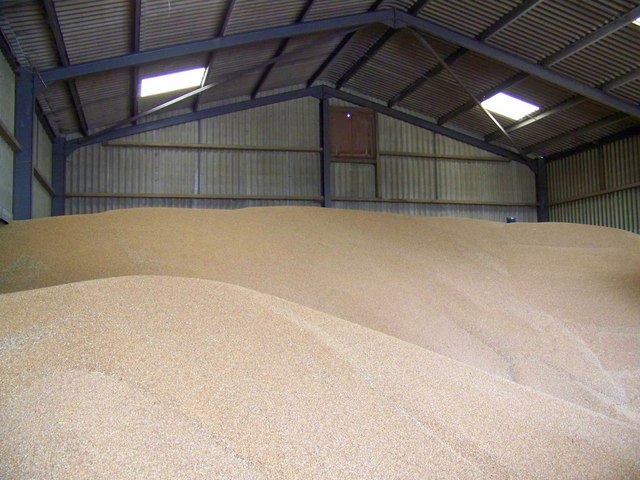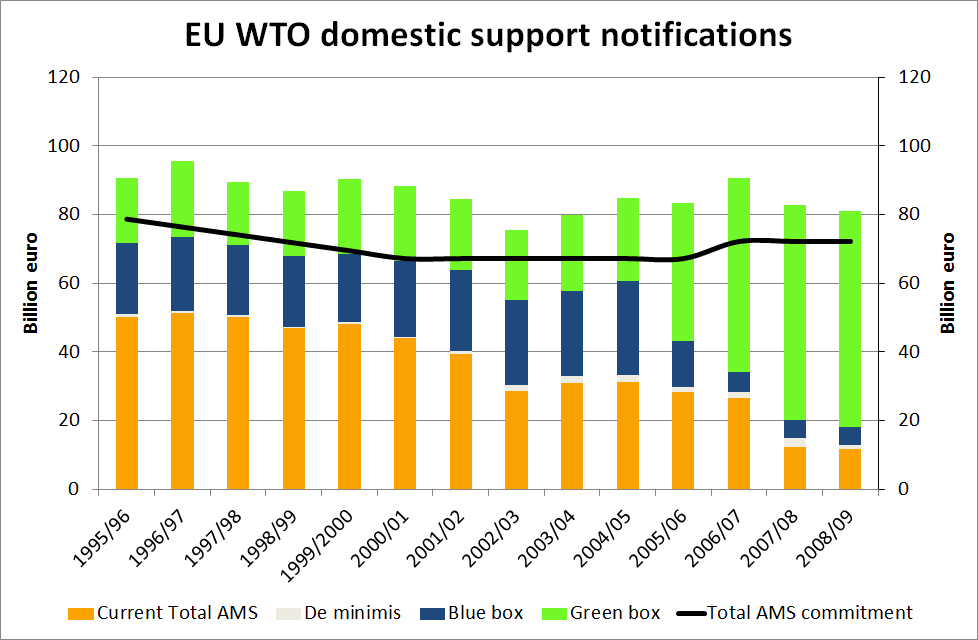A Basic Payment Scheme (BPS) is about to replace the SPS and the SAPS from 2014, therefore payment entitlements obtained under SPS shall expire on 31 December 2013. Under the new BPS, entitlements will be allocated to farmers who apply for it by 15 May 2014 and if he/she has either activated at least one payment entitlement under the SPS in 2011 or claimed support under the SAPS. If lacking such a status, a farmer will need to either make an application to the national reserve or rely on the contract route. Moreover, if a farmer transfers any entitlement before 2014, they have lost the right to make any further transfers.… Read the rest
The greying of Europe's farmers
Problems in the generational transfer of farms have been a focus of EU agricultural structures policy since the 1990s and in individual member states for an even longer period. Europe’s farmers are getting older, and the shortage of ‘new blood’ entering the industry is frequently seen as a problem requiring a policy response to correct.
The ageing of the agricultural population results from a combination of two things: a reduced rate of entry by new young recruits, and a reduced rate of retirement or exit by older farmers. This is taking place in the context of a long term reduction in the agricultural labour force in EU countries.… Read the rest
The greying of Europe’s farmers
Problems in the generational transfer of farms have been a focus of EU agricultural structures policy since the 1990s and in individual member states for an even longer period. Europe’s farmers are getting older, and the shortage of ‘new blood’ entering the industry is frequently seen as a problem requiring a policy response to correct.
The ageing of the agricultural population results from a combination of two things: a reduced rate of entry by new young recruits, and a reduced rate of retirement or exit by older farmers. This is taking place in the context of a long term reduction in the agricultural labour force in EU countries.… Read the rest
Why no “Green Revolution” in new Member States?
Competitiveness and innovation in the agriculture of new Member States before EU accession can be assessed as relatively poor. In a part of the area, the situation even resembled the situation in developing countries. In the parts where a certain level of development was achieved, i.e. closer to the Central Europe part of EU, extreme structural deficits were perceived. There was an obvious need for a development policy that would support restructuring and enable a new development cycle of agriculture.
Strong RD funding for modernisation of farms
Comprehensive European resources from the pre-accession and accession rural development funds were thus of great help.… Read the rest
Court of Auditors wants clearer objectives for post-2013 CAP reform
The European Court of Auditors is best known as the watchdog of the reliability and legality of the EU’s accounts. In its special reports it often undertakes an assessment of specific areas of Union activity, and it has published various reviews of specific aspects of agricultural expenditure over the years.
It can also submit opinions at the request of one of the other institutions of the Union, and it has just released an opinion on the Commission’s legislative proposals for the CAP post-2013 announced in October 2011.
The opinion focuses on whether and to what extent the Commission’s legislative proposals remedy weaknesses already identified by the Court following its audits.… Read the rest
Cross compliance for labour laws?
The Global Mail reports on a shocking case of alleged abuses of migrant workers in the Spanish horticulture industry, concentrated in the southern Spanish region of Almería along a 200km strip of hothouses known as el mar de plásticos. This is where much of Europe’s salad vegetable crop is grown.
Allegations range from payment below the minimum wage, employment of illegal migrants, intimidation and, in the most recent case, murder. The UK’s Guardian newspaper’s special correspondent Felicity Lawrence wrote a startling report into labour abuses in €2 billion a year hothouse industry. She found:
… Read the restMigrant workers from Africa living in shacks made of old boxes and plastic sheeting, without sanitation or access to drinking water.
How the CAP contributes to world market food price volatility
The contribution of export bans to the world food price spike in 2008 is now well-established, particularly for commodities such as rice (for example, see Abbott, 2012 and Sharma, 2011). Martin and Anderson (2012) have calculated that over the 2005-2008 period more than 45 per cent of the explained change in the international price of rice was due to changes in border restrictions that countries used in an attempt to insulate themselves from the initial increases in price.
Countries resort to export bans in an attempt to keep down the price of food to domestic consumers. When undertaken by countries whose level of trade is big enough to influence the world market price, then an export ban also has ramifications for other countries.… Read the rest
What is rural development about?
On 1 January 2011, 41% of EU-27 population lived in urban regions, 35% in intermediate regions and only 23% in rural regions, as suggested by the latest release of Eurostat. What is more, the population of urban regions grew by 5.2 per 1000 inhabitants, that of intermediate regions by 2.2‰, while rural regions decreased by 0.8‰ in 2010. These figures are based on a revised urban/rural typology, developed by the European Commission, and are valid for NUTS3 regions. Regions are classified as rural, intermediate or urban based on population density and total population.
However, as expected, individual member states differ significantly regarding the share of their rural population.… Read the rest
Latest EU AMS notification confirms declining trend in WTO amber box support
The EU has just submitted its domestic support notification to the WTO for the year 2008/09 (hat tip to LB) and this year there are no surprises. Total support (using the WTO definition) was a shade over €80 billion, but the value of its trade-distorting support (the so-called ‘amber box’, given by its current total Aggregate Measure of Support) fell to its lowest level ever, at just under €12 billion.
In that year, the EU used just over 16% of its Total AMS commitment (its bound ceiling) of €72.2 billion. In other words, the EU could have reduced its AMS commitment by over 80% in that year and would still have fulfilled its WTO amber box obligation.… Read the rest
Are the CAP 2013 proposals a major reform?
The economist’s dilemma
Economists evaluating the Commission’s legislative proposals for the CAP post 2013 face a dilemma.
Economists work within a paradigm in which agriculture is an industry no different from any other, where markets by and large do a good job in allocating resources, and where the only justification for government intervention requires both the existence of market failures and demonstrating that governments have access to relevant information or resources which would allow them to address those market failures effectively.
This is an extremely powerful toolkit because it allows economists to distinguish between welfare-enhancing policy interventions and those which are largely about shifting resources and rents from one group to another (the distinction between PERTs and PESTs using Gordon Rausser’s terminology in his well-known 1982 AJAE paper).… Read the rest







